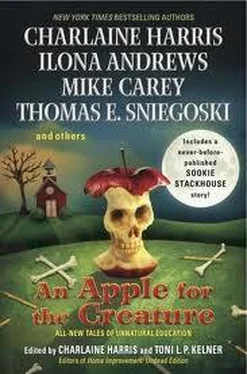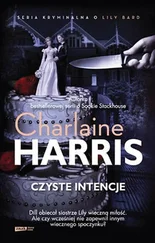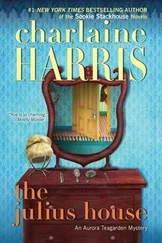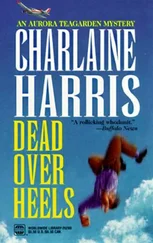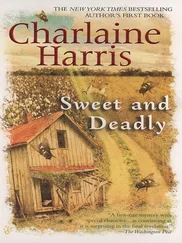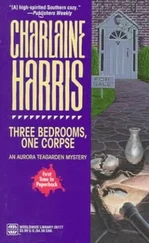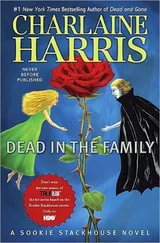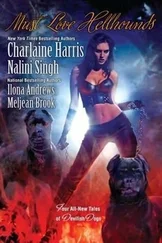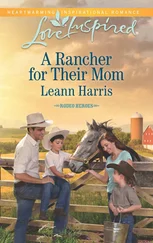And when I was done I set a shroud upon the thing, because its eyes seemed to watch me, and I could not stand the judgment already waiting, on high and low, and inside my heart where there was no peace and never would be, even if I got what I wanted.
Even so.
—
“There’s something different about you,” Ruth said, setting down some knitting as I approached her cabin. The morning sun was on her: hair silver as frost, her skin pale, and those bone needles shining white around her throat.
“I’m tired,” I said. “Been thinking.”
“Dangerous.” Ruth heaved herself from the rocking chair and went inside. “I’ll make you tea.”
She said those words with kindness. I’d heard them a million times. Comforting, warm. Ruth, who had rescued me. Ruth, who had raised me as her own. Ruth, who had been my teacher and friend.
When she turned her back on me I reached inside the satchel, grabbed the poppet, and squeezed.
Her back arched so wild she went up on her toes, a rattling cry tearing from her throat. I squeezed harder and heard a cracking sound. Bone, breaking.
Ruth crumpled, slamming down with a thud that rattled the entire porch. For a moment she was completely still, and then her fingers twitched, and her hands and arms began to move, and she clawed at the planks, panting for air. Her legs remained still.
I took a long deep breath, and climbed the steps. My heart pounded. Dark spots floated in my vision. Ruth tried to grab my foot, hissing curses at me, but I sidestepped and went into the cabin.
I gathered the dolls on the shelf, including one with my name embroidered over the heart. My hands burned when I touched it, dizziness sweeping down, but I swallowed hard and held the doll close—burning, burning—and went back outside.
“I’ll kill you,” Ruth whispered, gaze burning with hate. “I should have killed you years ago.”
“You held the leash and thought that was enough.”
Foam touched her lips. “I cared for you.”
I held up the doll she had made to control me. “Not in the right way.”
“You would do the same!” Ruth tried to grab me again as I walked past her to the yard. I dumped the dolls on the hard frost, and then reached into the satchel for Ruth’s poppet. I went back and showed it to her, crouching a safe distance away. Her eyes narrowed, and even with her back broke I saw those wheels turning, how she examined every stitch, searching for a flaw. But of course there was none. If I’d done one thing wrong, I’d be dead and she would be kicking my corpse into the refuse pile for the pigs to eat.
“Impossible.” Ruth tore her gaze from the poppet. “I own you.”
“I found sympathy.” I pulled down my collar to reveal two necklaces of bone needles hanging from my neck. “Just enough.”
Her eyes widened. “Those men.”
I said nothing, and the silence was terrible and heavy, heavy on me because I saw myself in that moment; me, in Ruth’s place, sprawled on the porch with a broken back and some other girl standing over me, ready to take my place with a fury. Future or not, it chilled me.
“Oh, God kill you,” Ruth whispered. “God kill you, and the Devil, too.”
“In time,” I said, and twisted the poppet’s head.
—
Freedom should have a tingle, some flash of light, but I felt no different afterward. Maybe I wasn’t free. Maybe being free of Ruth wasn’t the same thing at all.
I burned all the dolls, except mine. I was too much a coward to tempt my own death, though I deserved it in a mighty way. Shadow of death over my heart, waiting, waiting, for the needle and thread. Wicked stitchery.
I wanted to learn a different kind.
Ruth, I burned with the dolls. I broke her needles.
But I kept her house.
—
A week later, I heard word that Delphia had passed. No relatives nearby to care for the baby, and no one stepped in to take claim. I waited, to be sure, and then went down into the valley to take the girl. I did not ask. I held out my arms, and there was something in the way those folk looked at me, something I’d never seen before except when they looked at Ruth, but I supposed I finally had her eyes.
I took the child in, but the only doll I made for her was stitched for play, with a needle from her father’s hand.
Things would be different, I promised.
All for sympathy for the bones.
Rhys Bowen currently writes two historical mystery series: the Molly Murphy novels, featuring a feisty Irish immigrant sleuth in 1900s New York City, and the lighter, funnier Royal Spyness series about Lady Georgiana, thirty-fifth in line to the British throne in the 1930s. Rhys’s books have received many award nominations and she has won thirteen major awards, including Agatha, Anthony and Macavity as well as Reader’s Choice for Best Mystery Series. Her books are definitely traditional mysteries so she loves writing short stories where she can reveal her inner dark and evil side. Rhys is a transplanted Brit, now dividing her time between California and Arizona, where she goes to escape the harsh California winters.
“Where are your two number-two pencils, properly sharpened?”
I looked up at a man who had a face like a skeleton—sunken eyes, skin stretched over cheekbones, thin humorless mouth. His glasses were perched on the end of a long nose and he was almost bald, too, completing the skeletonlike effect. He was wearing a grayish-white, short-sleeved button-down shirt with ink stains around the pocket, and a tie onto which egg had dripped at some stage. The word schoolteacher formed in my mind at the same moment that he repeated the question.
“Your two number-two pencils? Properly sharpened?” He paused, those colorless sunken eyes staring at me now with distaste. “You do have your two number-two pencils, properly sharpened, I hope?”
I patted my side, then looked around me. “I don’t seem to have brought a purse.”
He made the sort of tut-tutting noise I’d only read about before and gave a big dramatic sigh. “Not a good start to our first day, is it? The instruction sheet clearly told you that two number-two pencils would be required and that they should be properly sharpened as there is no sharpener available in the examination room.”
“I don’t think I received . . .” I stammered. “I don’t remember receiving any kind of instruction sheet.”
“Everybody is sent the instruction sheet in preparation for their first day,” the man said. “Clearly you chose to disregard the instructions. I shall have to report this to Ms. Fer.”
“Ms. Fur?”
“Our principal. And no, it is not spelled fur like the animal’s hair. It is Fer from the Latin ‘to do’ or ‘to make,’ as I’m sure you know, being a student of the subject.”
I nodded.
“I’m afraid Ms. Fer will not be pleased. Oh, dear me, no. We expect everyone here to obey the instructions to the letter.”
I shrugged. “Well, I’m sorry but I don’t remember receiving any instruction sheet. I guess it must have been lost in the mail. And I can’t make pencils appear out of thin air.”
He reached into his shirt pocket. “As it happens, I do have a pencil I can lend you, just for today,” he said. “To help you out this once. Until you know the ropes. But I expect it to be returned immediately after the examination, you understand. And don’t break the point because there is no way to sharpen it in the examination room.”
I stared at his pocket, blinked, then stared some more because I could have sworn there had been no pencil sticking out of that pocket before but now there appeared to be several. He handed it to me solemnly, as if he were bestowing a great gift. Then he glanced at his watch. “You’d better hurry. Showing up late for the examination is something that wouldn’t be so easily forgiven. Go on. Off you go.”
Читать дальше
